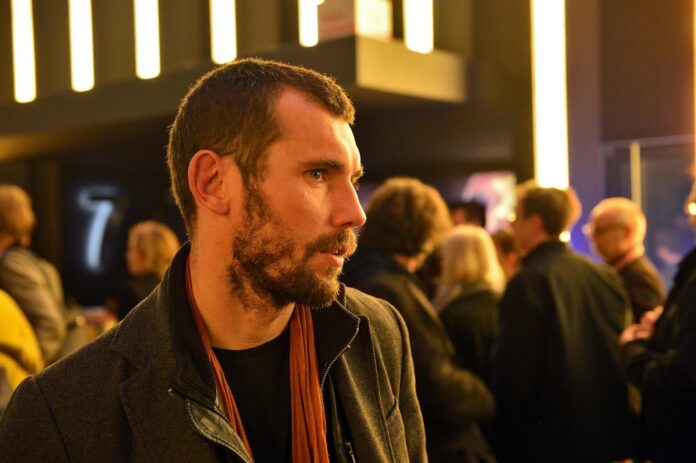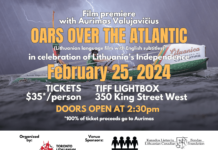
On April 2, Lithuanian film director, archeologist Mantas Kvedaravičius was in a car hit by a missile near the city of Mariupol. Born in 1976, Kvedaravičius studied archeology at Vilnius University graduating in 1999, and researched various sites in Lithuania, specializing in underwater archeology. He taught religious, law and political theory at Cambridge Univeristy from 2003 to 2005, and obtained a Master’s degree in social and cultural anthropology from Oxford in 2007.
In 2011 his film Barzakh about Cechnya and its disappearing population won the Amnesty International and Ecumenical Jury prizes at the Berlin film festival, as well as the Silver Crane, Lithuania’s national award, and was shown at 40 other international film festivals, winning over 15 documentary awards. In 2013 Kvedaravičius received a doctorate in social anthropology at Cambridge University.
His second documentary “Mariupolis”, a portrait of Eastern Ukraine, was shown at the 2016 Berlin Film Festival, and in 2019 his feature film “Parthenon”, portraying a journey through Turkey, Ukraine, Greece and Northern Uganda, was chosen for the critics’ competition at the Venice film festival.
The Ukrainian news agency UNIAN also reported the death of the Lithuanian filmmaker, quoting Russian film director Vitaly Mansky. On Facebook, he wrote that Kvedaravičius “died with a camera in his hand”. The president of Lithuania and many other dignitaries expressed shock and sadness on the loss of this brave and talented Lithuanian scholar and director. On April 3, his memory was honoured during the award ceremony at the Vilnius International Film Festival Kino Pavasaris. Bernardinai.lt, alkas.lt





























